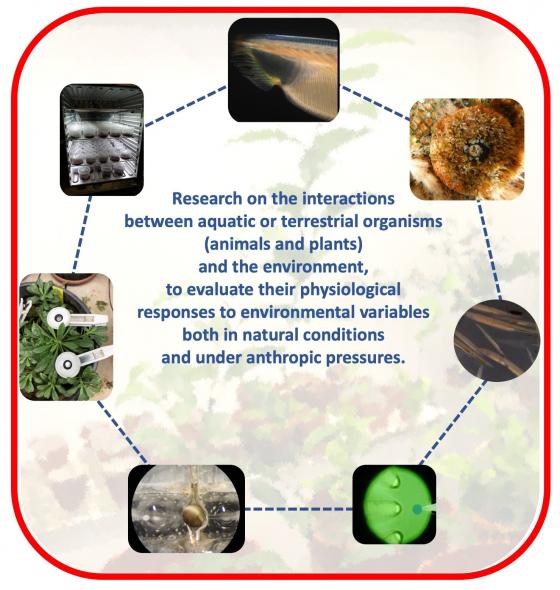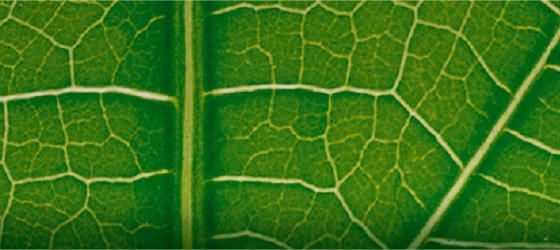Research on the interactions between aquatic or terrestrial organisms (animals and plants) and the environment, to evaluate their physiological and ecophysiological responses to environmental variables both in natural conditions and under anthorpic pressures. Within this frame, researchers at DISTAV carry out multiple research activities, such as:
- Mechanisms involved in physiological responses of marine invertebrates (adults and larval stages), determined form the molecular to organism level, to changes in abiotic and biotic environmental variables (T. Balbi, L. Canesi)
- Molecular monitoring of biomarkers associated to the growth potential or to stress conditions in the process of macroalgal forests restoration in the Mediterranean Sea (M. Chiantore, S. Scarfì)
- Functional morphology of fishes, focused on sensory organs and skin appendages (S. Ferrando)
- Characterization of maritime noise in different European basins and its impact on ecological relevant deuterostome invertebrates (S. Candiani)
- Ecophysiological response (photosynthetic efficiency and performance) of plants subjected to environmental stress factors (M. Mariotti, E. Roccotiello)
- Evaluation of environmental contaminated matrices via phytotoxicity test (M. Mariotti, E. Roccotiello)
- Mechanisms of biomineralization in marine organisms and climate change impact on bio-construction processes (M. Giovine, M. Pozzolini)
- Biomineralogy: effects of different mineral substrates on settlement and growth of benthic marine invertebrates (M. Giovine, M. Pozzolini)
- Functional characterization of plant/animal ion channels and transporters by electrophysiological techniques (A. Carpaneto)

